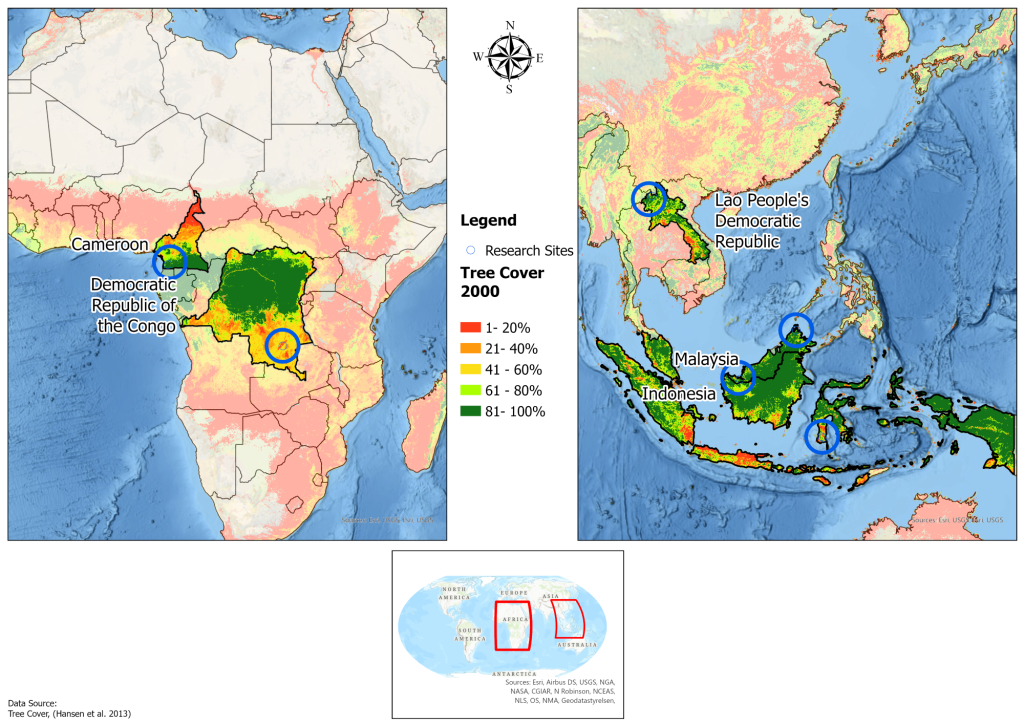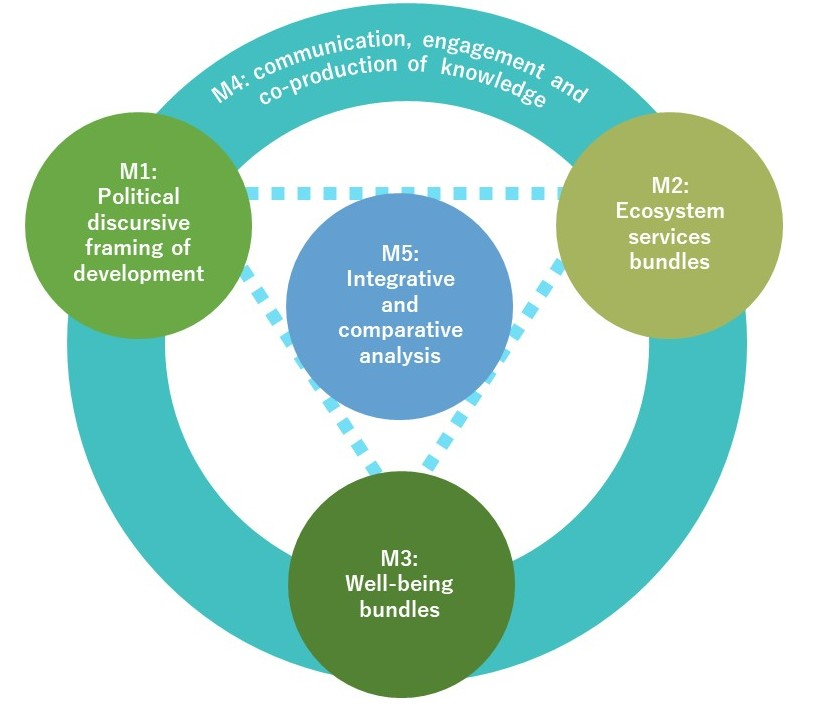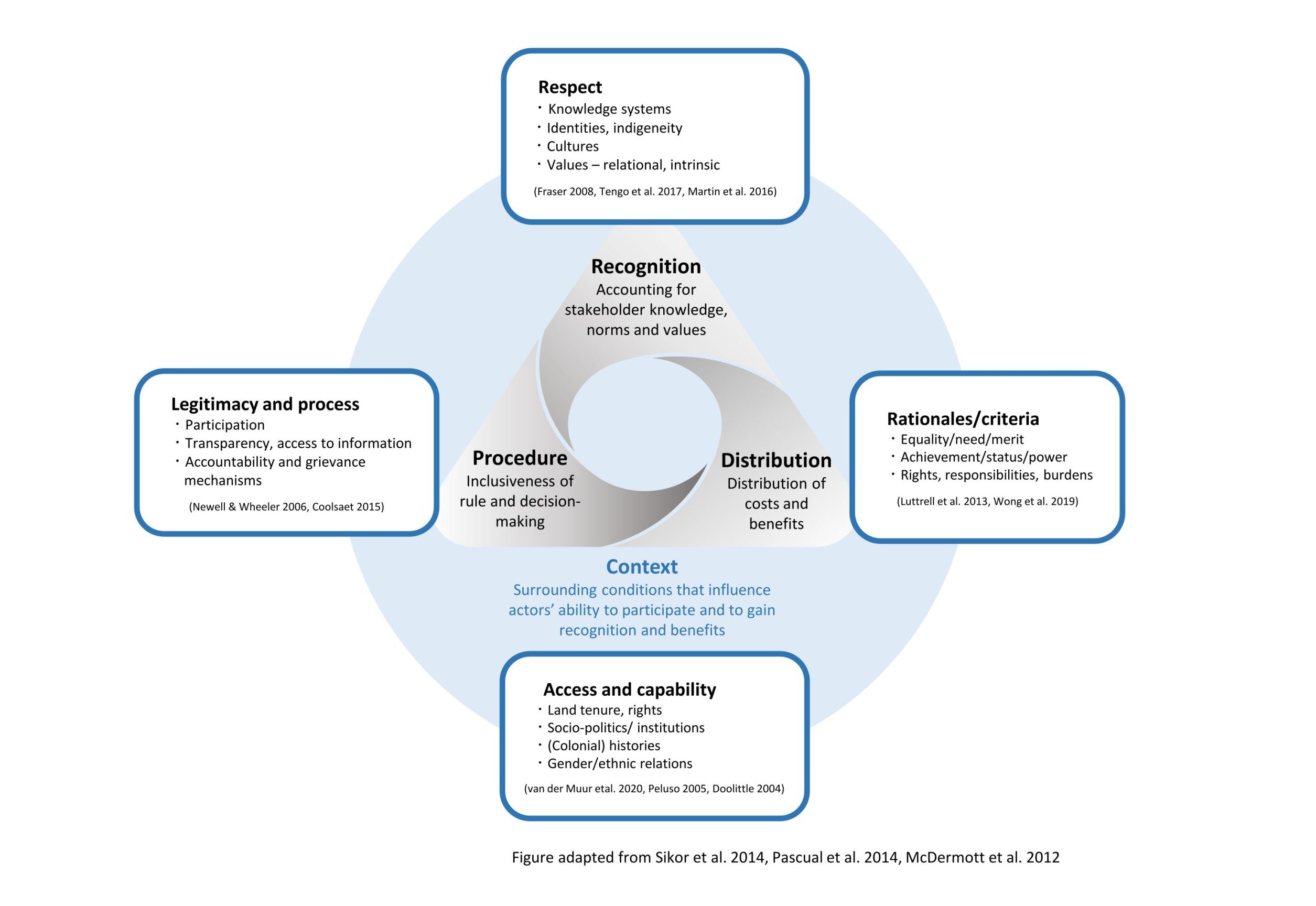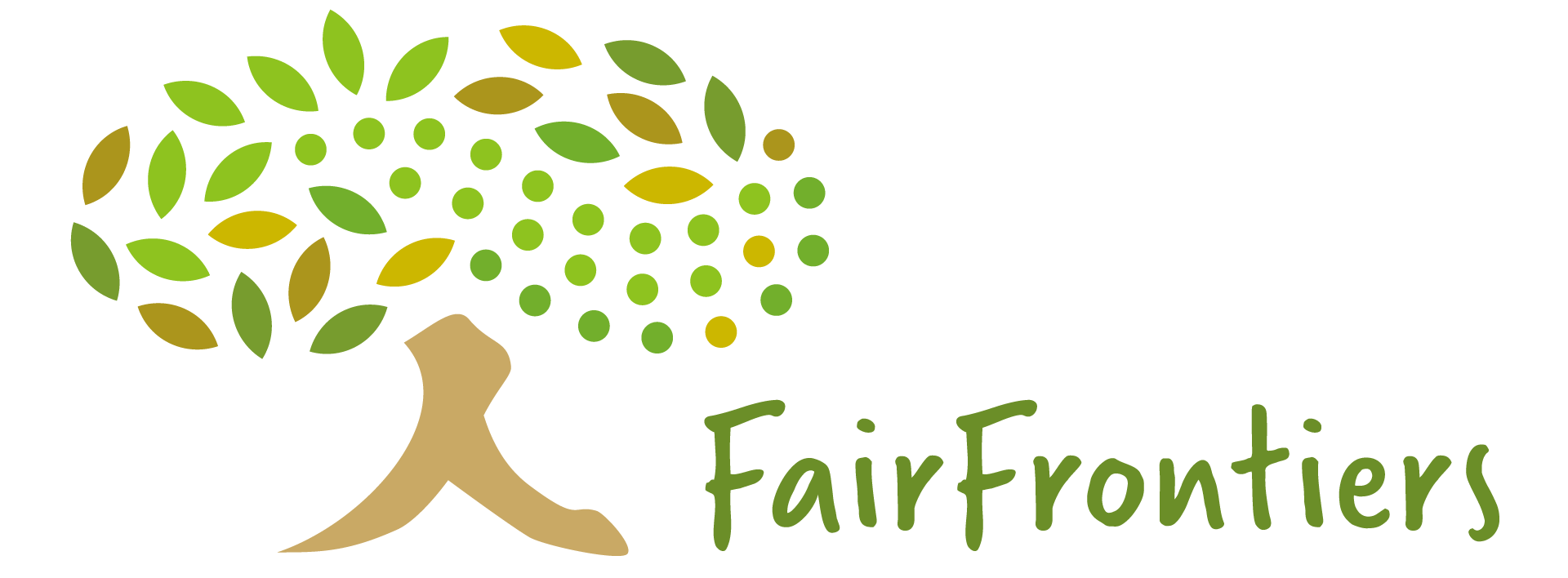Background
Throughout the tropics, forest-agriculture frontiers dominated by diverse swidden mosaics are being converted to homogenous landscapes of commodity agriculture. Despite being labeled as “development”, smallholders in these landscapes often benefit less than local elites and external investors in frontier transformations, reflecting underlying politics, institutional and power structures around forests and land-use tenures.
FairFrontiers applies inter- and transdisciplinary approaches to ask:
Whose interests drive transformations of forest-agriculture frontiers, who benefits and who is made precarious?
What are possible policy options that can deliver ecologically sustainable and socially equitable outcomes?
Objectives
The overall objective of this research is to advance our understanding of the social and ecological effects of transformations of the forest-agriculture frontier on ecosystems and people by going beyond standard measurements of a narrow range of well-being and ecosystem service variables.
This project will examine the dynamics of transformations from swidden to commodity-driven agriculture at two levels:
- Examine the discursive and political narratives around swidden, forests and commodity agriculture within development, green economy and climate change policies and interventions to assess how institutional factors and underlying power structures may create new, reinforce or reduce vulnerability and precarity.
- Carry out research at the local level in six case study regions to understand the values, actions and agency (or lack thereof) of local people to manage and benefit from the different trajectories of change in swidden landscapes, as well as how changes in ecosystem services and the underlying ecological processes both affect and are impacted by the changed land use practices.

Case study regions – Cameroon, Democratic Republic of Congo, Indonesia*, Laos, Malaysia
*Indonesia study is led by Professor Muhammad Alif K. Sahide at University Hasanuddin Faculty of Forestry, partner with University of West Sulawesi, Peasant Network School of Payo Payo, and East-West Center
Project Structure
The project is organized into 5 modules:
- Module 1 will carry out critical discursive analyses of the different framings of development in forest-agriculture frontiers;
- Module 2 and 3 will examine how bundles of ecosystem services and well-being are changing in frontiers;
- Module 4 will apply transdisciplinary approaches with co-production of knowledge on, and inclusion of diverse and local narratives of sustainable futures;
- Module 5 will carry out integrative and comparative analyses across modules, scales and countries.

Analytical Framework
The project’s analytical framework is built on theories of power and everyday politics, social and environmental justice and ecosystem service science. Following the critical discourse approach, FairFrontiers carries out research that examines “… the perspective of those who suffer most, and critically analyses those in power, those who are responsible, and those who have the means and the opportunity to solve such problem.” (Van Dijk, 1986, cited in Wodak, 2011).
Over the past year, we carried out in-depth background studies on the theoretical concepts and empirical methods for assessing the multiple dimensions of equity (see below) and critical reviews on how forest frontiers and indigenous rights are represented in the scientific literature.

